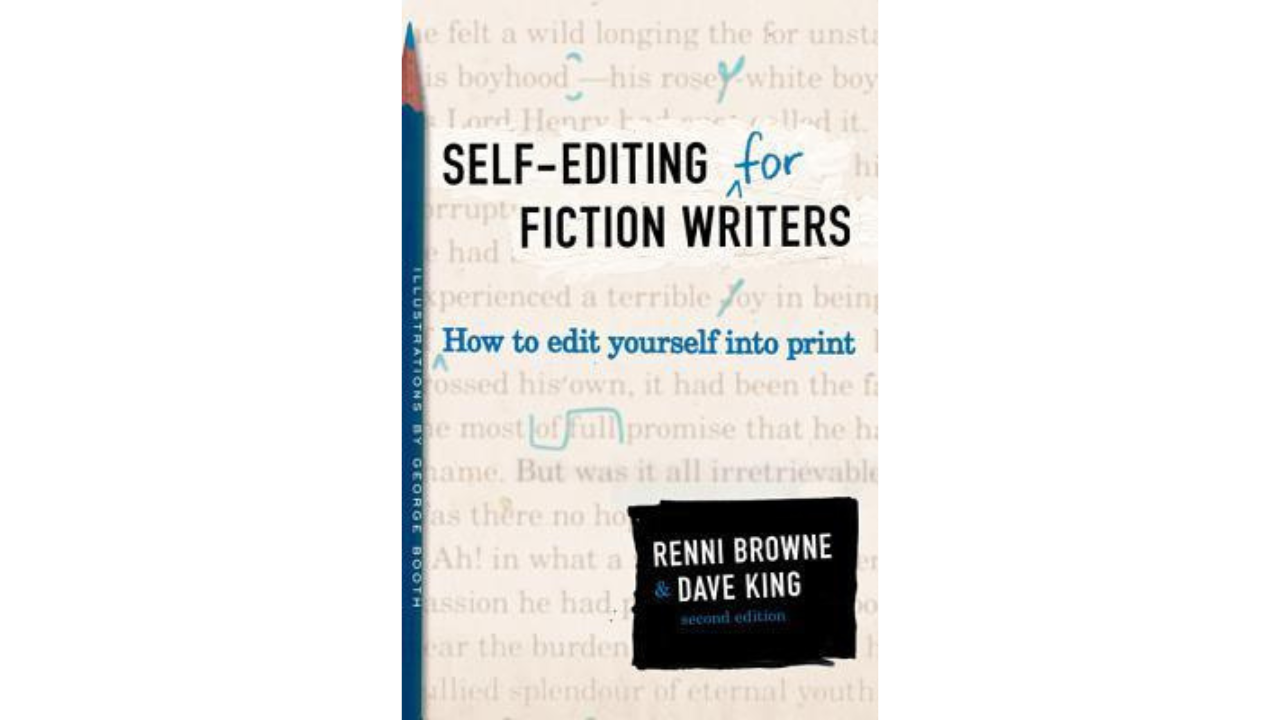Recommended Resource: Self-Editing for Fiction Writers

Post written by Katie Wall. This post contains an affiliate link. This means if you click on the link and purchase an item, we will receive an affiliate commission at no extra cost to you. All opinions remain our own.
While I've shared before about Tiffany Yates Martin's Intuitive Editing as an amazing resource for writers, I now want to highlight another:
Self-Editing for Fiction Writers: How to Edit Yourself Into Print, 2nd ed., by Renni Browne and Dave King.
This book is excellent for building your scene and line-level editing skills. Why?
Because the authors break down the following topics in easy-to-understand yet thorough chapters:
- Show and tell
- Characterization and exposition
- Point of view
- Dialogue
- Interior monologue
- Beats
- Proportion
- Repetition
- Sophistication
- Voice
In addition to numerous examples throughout the text to illustrate their points, the authors also include a handy checklist at the end of every chapter, as well as exercises you can do to practice your newfound skills.
These exercises have an answer key in the back of the book, so while you won't get the same benefit as you would in a classroom or individual coaching session, you will still get more "feedback" on how you're applying the concepts than the average writing resource.
I underlined quite a bit in this book, and here are some quotes that I think are especially worth sharing:
- "When you define your characters the minute you introduce them, you may be setting boundary lines that your readers will use to interpret your characters' actions through the rest of the book. But if you allow your readers to get to know your characters gradually, each reader will interpret them in his or her own way, thus getting a deeper sense of who your characters are than you could ever convey in a summary, " (pg. 26).
- "It's far better to rewrite your story in a way that makes use of the good stuff than to simply to use your story as an excuse for writing the good stuff. In the end, you want to be able to cut most of what doesn't interest you and still have an intact, flowing plot made up of the stuff that does," (pg. 75).
- "The best way to fine-tune the rhythm of your dialogue, of course, is to read it aloud. Listen for the pauses as you read, and if you find yourself pausing between two consecutive lines, consider inserting a beat at that point," (pg. 151).
- "Far too often, fictional antagonists are so thoroughly evil, so rapacious or sadistic or egomaniacal, that they cease to be frightening. The most frightening heavies, of course, are those readers can understand and identify with on some level," (pg. 186).
- "Remember, your primary purpose as a writer of fiction is to engage your readers in your story the best way you can. When your style starts to overshadow your story, it's defeating that purpose," (pg. 219).
Great tidbits of info, right??
As a book coach and editor, I'm often really hard on the writing resources I read. I want writers to have access to quality references that will continue to challenge them to grow again and again—not just the first time you read it. This is one of the best books on revision I've found, which is exactly why I'm recommending it!
Ready to add this to your writing craft library? Get it here.
P.S. This is a book that we've gone through together in The Alcove, the writing community we host over on Discord. If you're looking for a community of dedicated writers to study craft with, check us out!
Stay connected with news and updates!
Sign up to receive our newsletter, special coupons for our products, and announcements about our growing selection of tools for authors!
We hate SPAM. We will never sell your information, for any reason.




